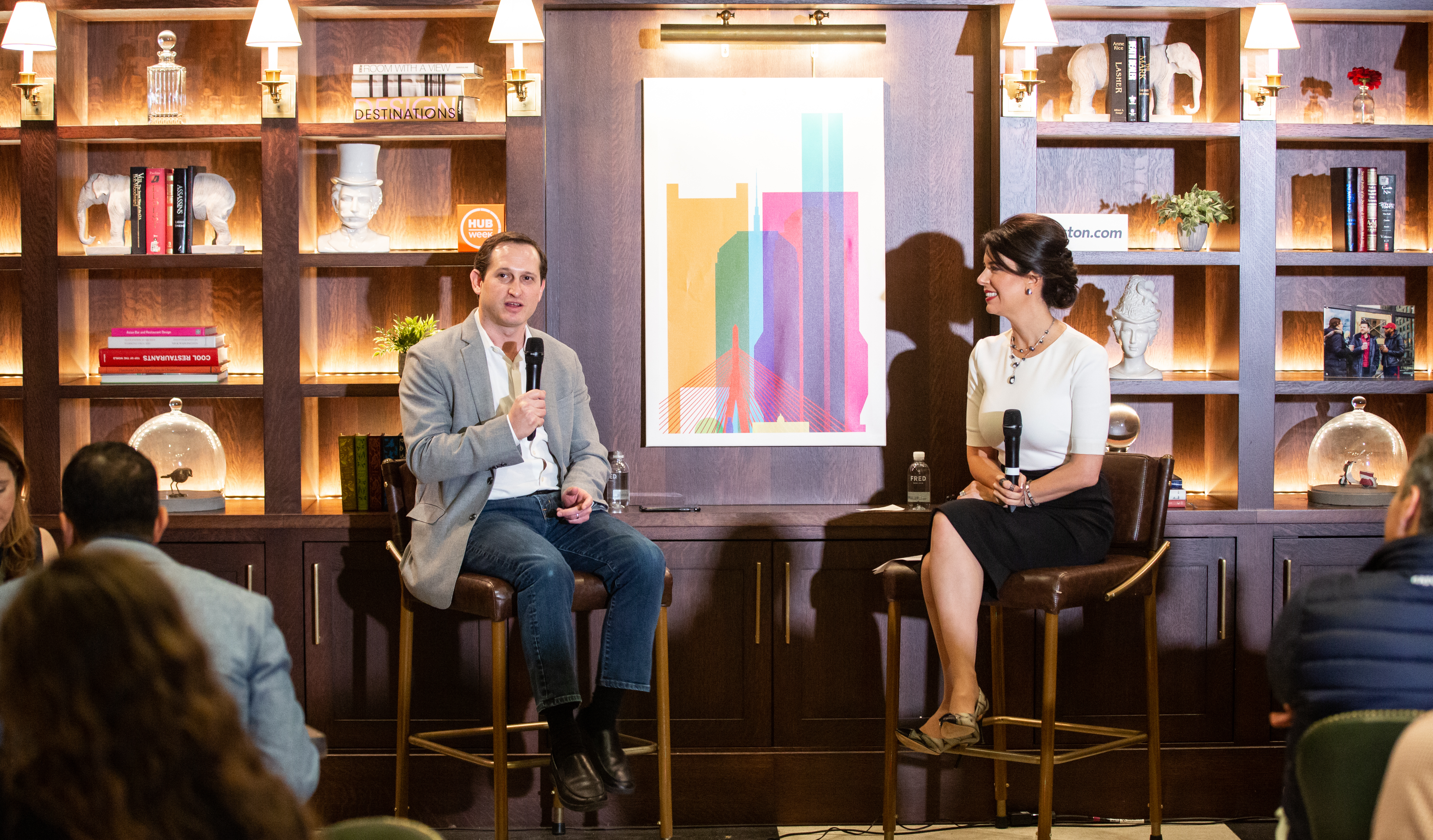This month’s HubWeek Curated Conversation featured DraftKings co-founder and CEO Jason Robins, in conversation with Linda Henry, Boston Globe Managing Director and HubWeek co-founder. Launched in 2012, DraftKings has become a major Boston startup success story – reaching unicorn status thanks to its unique platform for daily fantasy sports contests. Over lunch, Robins talked about his love of entrepreneurship, journey to founding DraftKings, and philosophies on taking risks and leading a company amidst uncertainty. Here are our five biggest takeaways from the conversation.
ON BIG IDEAS: It’s who does it best, not who does it first
Robins always knew he wanted to get in on the ground floor of a startup, but he was worried he didn’t have a completely new idea. “I had this thing in my head that in order to build a company that was going to be big, you had to think of the idea first,” he said. But he quickly realized that having competition can actually be beneficial, especially when you’re trying to build a new market. “Literally every big tech company from Facebook to Google were not the first ones to do it,” Robins told the audience. “If it’s early enough in a market and there are a lot of people trying to do something, it’s about who does it best, not who does it first.”
ON RAISING MONEY: It gets better
Raising money for the first time? “It’s really, really hard.” When Robins first began conversations with VC’s, “The odds were really against us: We had no product live to market, certainly no customers or revenue. We had a badly built prototype, a PowerPoint deck, and an Excel model, and oh, by the way, we’re also still at our day jobs.” He estimates that he was turned down more than 60 times before any funding came through. However, he reassured the crowd that with a lot of practice, everyone can be a successful fundraiser. “Eventually you get over the hump, and, like everything, you figure out how to do it.” Need proof? Eight funding rounds later, Robins has raised over $644 million for his company.
ON FINDING PARTNERS: Talk to the right people
To raise that $644 million, Robins had to refine more than his pitch — he had to refine his investor list, too. Asking a VC friend what he was doing wrong, the friend’s first question was, “Well, who are you talking to?" It turns out, not all VC's are created equal, and pitching to a clean tech investor won’t get you the results you want for your consumer tech company. “So you have to not just look at what they invest in, but you actually have to ask pre-qualifying questions,” explained Robins. “Say look, I’d love to meet with you, but before we do that can you make sure this is a space that you’ll actually invest in.”
ON GETTING AHEAD: Take risks
Since founding DraftKings, Robins has taken a series of strategic risks that have put his company at the forefront of the fantasy sports market: “Part of being successful in entrepreneurship is taking risks, especially in industries like ours, which are so fluid and dynamic and are changing so quickly.” But not all risks are worth the, well, risk. “They have to be smart risks, and part of taking smart risks is giving yourself a decent probability of success,” said Robins.
ON THE FUTURE OF SPORTS: Connected devices rule
DraftKings has already pushed the sports experience into new territory, but Robins continues to prepare his company for a future he sees as being defined by connected devices. Watching and engaging with sports "Is not going to be going on a website anymore; it’s going to be walking in the door and saying to your Amazon Echo, 'Hey, Alexa, can you throw $50 on the Red Sox tonight?'" According to Robins, innovations like 5G and in-home devices will make watching sports a much more convenient, seamless, and integrated experience, and viewers will expect to be able to access all of their content from all their devices. "People will be able to access a lot of things, maybe everything, from different devices, and they’re going to use the ones that make the most sense for them in that moment."
